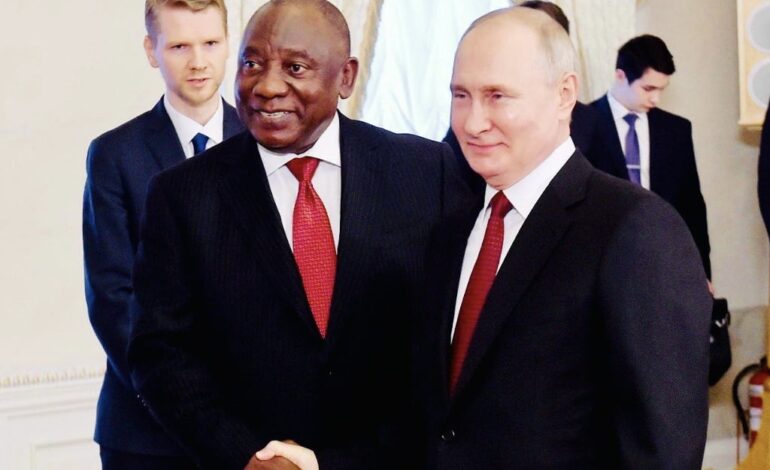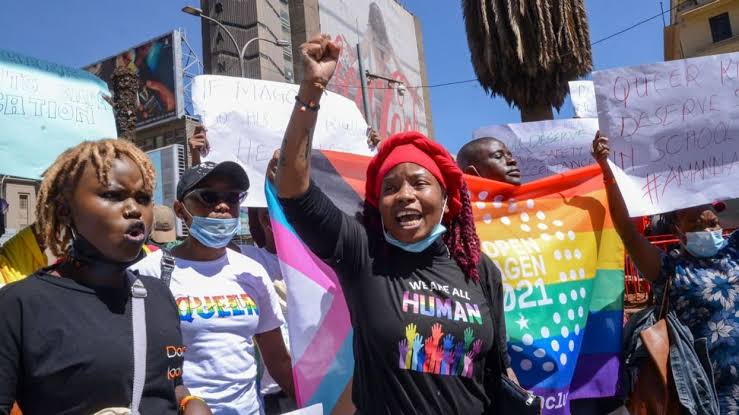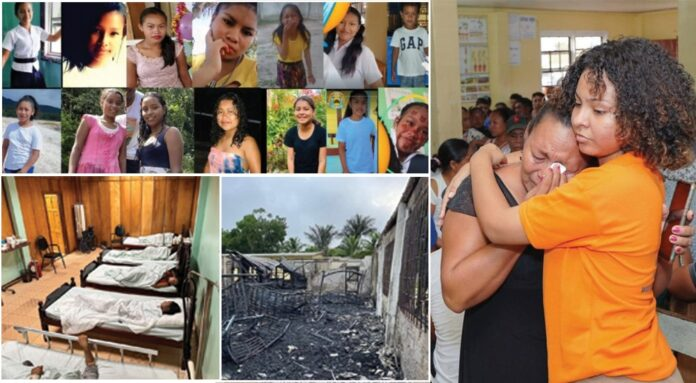
Faith Nyasuguta
President Cyril Ramaphosa has told the High Court in Gauteng that arresting Russian President Vladimir Putin, if he travels to South Africa for the BRICS summit in August, would be a declaration of war against Russia.
And the president did not want the public to know that.
However, the court ruled on Tuesday that Ramaphosa and his government’s response to the DA’s ( Democratic Alliance) legal attempt to force the government to arrest Putin should be made public.
“It would be a reckless, unconstitutional and unlawful exercise of the powers conferred upon the government to declare war with Russia by arresting President Putin,” Ramaphosa told the court in his affidavit, which he argued should be kept a secret.
The court disagreed with the Presidency’s assertions that Ramaphosa wanted to keep his affidavit secret “to keep the interactions with the ICC [International Criminal Court] on the warrant of arrest against President Putin confidential”.
In the affidavit, which has since been made public, Ramaphosa said he did not want to risk waging war with Russia.
“It would be inconsistent with our Constitution to risk engaging in war with Russia. I have constitutional obligations to protect the national sovereignty, peace and security of the republic, and to respect, protect, promote and fulfill the rights of the people of the republic to life, safety and security, among other rights in the Bill of Rights,” he said.
In arguing for confidentiality, Ramaphosa quoted a Rome Statute article which states that a requested country “shall keep confidential a request for co-operation and any documents supporting the request confidential, except to the extent that the disclosure is necessary to the execution of the request”.
South Africa is a signatory to the Rome Statute, which governs the ICC.
Following Tuesday’s judgment, the Presidency said that Ramaphosa “was never opposed to making the affidavits public; it was only in compliance with the ICC directive that the Presidency sought to maintain confidentiality on the affidavit”.
The High Court order came in response to the DA’s application that the government must “take all necessary steps to arrest and detain President Putin for surrender to the ICC” should he arrive for the BRICS summit, expected to run from 22 to 24 August in Johannesburg.
The ICC issued an arrest warrant for Putin in March, accusing him of war crimes relating to Russia’s ongoing invasion of Ukraine since February last year.
The DA is relying on the Supreme Court of Appeal’s (SCA) 2015 judgment that it was unlawful for the government not to have arrested Sudan’s former president Omar al-Bashir when he attended the African Union summit in June of that year.
The ICC had also issued an arrest warrant for Al-Bashir for alleged war crimes he committed during his 26-year reign before being ousted by a 2019 military coup.
Ramaphosa said in his affidavit that the DA’s demand for the government to arrest Putin was “incompetent” because “the government of South Africa is not cited as a party to the application, and no relief can therefore be granted against it”.
South Africa has strong economic and trade relations with the United States and Europe.
Trade with Russia is much smaller, but Pretoria has ties with Moscow dating back decades, to when the Kremlin supported the governing African National Congress party in its struggle against apartheid.
Last month, Ramaphosa led a seven-country African peace delegation including representatives from Egypt, Senegal and Zambia, to talks in Kyiv and Saint Petersburg.
Commenting on the affidavit on the sidelines of Nelson Mandela Day celebrations in the late leader’s birthplace of Qunu, Ramaphosa described the case as involving “intricate diplomatic issues”.
RELATED:




